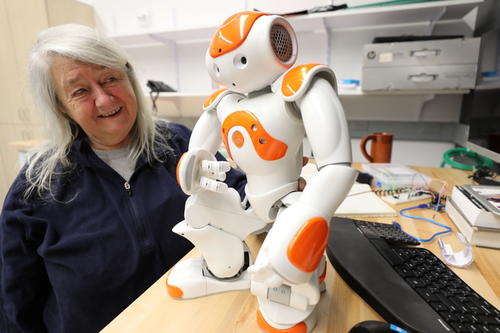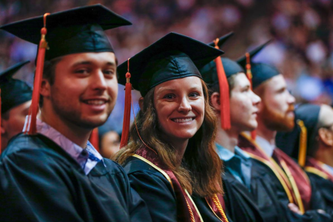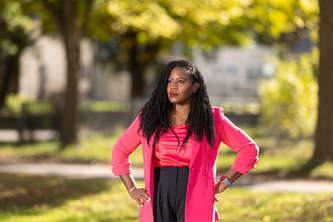
Today at the Minnesota Capitol, University of Minnesota President Eric Kaler outlined the University’s biennial budget request and capital request to the State of Minnesota, emphasizing the need to invest in the University’s core needs and operations to maintain its strong, positive impact across the state.
“We believe that the State of Minnesota is best positioned for success when it invests in the University of Minnesota,” said Kaler. “The University is not only powering Minnesota's economy today, but through our research, education and outreach enterprise, we are building the economy of Minnesota’s future.
“Our biennial budget request and our capital request reflect our highest priority needs,” continued Kaler.
“Without state support in our operations and our infrastructure, we simply cannot maintain our current levels of excellence in teaching, research and outreach. Throughout the 2019 legislative session, the University community will be working hard to bring this message to our state’s lawmakers.”
In outlining the University’s requests today, President Kaler was joined by a diverse array of speakers to exemplify the University’s strength in education, research and outreach activities.
U of M Rochester student Chidiogo Orakwue, who was born in Nigeria, told her story of choosing to attend UMR for its empowering environment and resources to help her achieve her goal of becoming an obstetrician. U of M Extension Educator Megan M. Weber spoke about her involvement with the Aquatic Invasive Species Detectors program, which is working to harness the power of an engaged public in aquatic invasive species prevention, detection and research in Minnesota. Finally, Marie Manner, a recent PhD graduate from the University's AI, Robotics, and Vision Laboratory and Jed Elison, associate professor in the Institute of Child Development, spoke about the University’s research in autism, including the use of robots in early childhood detection.
The speakers—focusing on education, outreach and research, respectively—all highlighted the need for core operations funding to continue their work and create the greatest possible impact on Minnesotans and the world.
The University’s biennial budget request totals $30 million in fiscal year 2020 and $27 million in fiscal year 2021 for the University’s core mission activities. The request reflects a 6.7 percent increase in base funding (biennium to biennium).
The majority of the University’s capital request for the 2019 legislative session includes $200 million in Higher Education Asset Preservation and Replacement (HEAPR) funds. These dollars will preserve and maintain existing laboratories, research centers, classrooms and outreach spaces across Minnesota.
“Our capital request is about renovating and restoring our 29 million square feet of space across our system,” said Kaler. “Our facilities—originally built with state funding—are in dire need of repair. The preservation of these existing buildings through HEAPR investment is not only our most affordable option, it is also imperative in order to continue serving Minnesotans for generations to come.”
The University’s capital request also includes $28 million for the Child Development building replacement on the Twin Cities campus and $4.3 million for the renovation of A.B. Anderson Hall on the Duluth campus.
- Find out more about the University’s 2019 legislative requests at government-relations.umn.edu.
- Download high resolution images relating to the University’s legislative requests.
- Download a PDF map of the University’s impact across the state.
- Categories:
- Campus Affairs





